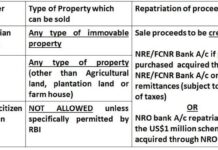Can Income Tax Assessee Use Different Method For Different Sources of Income?

Reply :– An issue which arises is whether the income under all heads of income, or under a particular head of income, has necessarily to be computed under the same method of accounting, or whether an assessee can follow different methods of accounting for different sources of income under the same head of income, or different heads of income.
It was well settled, prior to 1995, that the method of accounting is vis-a-vis each source of income, since computation of income is first to be done for each source of income, and then aggregated under each head of income.
An assessee could choose to follow one method of accounting for some sources of income, and another method of accounting for other sources of income. In J K Bankers v CIT 94 ITR 107 (All), the assessee was following mercantile system of accounting in respect of interest on loans in respect of its moneylending business, and offered lease rent earned by it to tax on a cash basis under the head “Income from Other Sources”. The Allahabad High Court held that an assessee could choose to follow a different method of accounting in respect of its moneylending business and in respect of lease rent. Similarly, in CIT v Smt Vimla D Sonwane [1994] 212 ITR 489 (Bombay), the Bombay High Court held that “The assessee is indeed free even to follow different methods of accounting for income from different sources in an appropriate case”.
The question which arises, after the amendment of section 145 in 1995, is whether this position still continues. One view is that the section, after amendment, now permits either the cash method of accounting or mercantile method of accounting for all sources under both the heads of income, “Profits and Gains of Business or Profession”, and “Income from Other Sources”.
CBDT Circular No 717 dated 14th August 1995, which has explained the amendment made in 1995, clarified that the amendment to section 145(1) was only to prevent the assessees from following the hybrid method in a manner that did not reflect the correct income. Therefore, the intention behind the amendment was not to change the method of computation of income from a source-wise basis to a head-wise basis. This is also clear from the fact that the provisions of section 70, which provide for set off of loss from one source against income from another source under the same head of income, were left unchanged.
Therefore, the method of computation of income still remains source- wise, even after the 1995 amendment, and the ratio of the court decisions rendered prior to the amendment, permitting following of different methods of accounting for different heads of income or different sources of income, would still apply. Following different methods of accounting for different sources of income does not distort the correct income for the particular source. What is now not permissible is following of a hybrid method for the same source of income. An assessee therefore continues to have the choice of following mercantile system of accounting for certain sources of income, and cash system of accounting for other sources of income. This view is supported by the decision of the Rajasthan High Court in the case of CIT v VTC Leasing & Finance Ltd [2010] 323 ITR 514 (Rajasthan).

By CA Ankit Gulgulia (Jain)
24th June, 2018
Reply :– An issue which arises is whether the income under all heads of income, or under a particular head of income, has necessarily to be computed under the same method of accounting, or whether an assessee can follow different methods of accounting for different sources of income under the same head of income, or different heads of income.
It was well settled, prior to 1995, that the method of accounting is vis-a-vis each source of income, since computation of income is first to be done for each source of income, and then aggregated under each head of income.
An assessee could choose to follow one method of accounting for some sources of income, and another method of accounting for other sources of income. In J K Bankers v CIT 94 ITR 107 (All), the assessee was following mercantile system of accounting in respect of interest on loans in respect of its moneylending business, and offered lease rent earned by it to tax on a cash basis under the head “Income from Other Sources”. The Allahabad High Court held that an assessee could choose to follow a different method of accounting in respect of its moneylending business and in respect of lease rent. Similarly, in CIT v Smt Vimla D Sonwane [1994] 212 ITR 489 (Bombay), the Bombay High Court held that “The assessee is indeed free even to follow different methods of accounting for income from different sources in an appropriate case”.
The question which arises, after the amendment of section 145 in 1995, is whether this position still continues. One view is that the section, after amendment, now permits either the cash method of accounting or mercantile method of accounting for all sources under both the heads of income, “Profits and Gains of Business or Profession”, and “Income from Other Sources”.
CBDT Circular No 717 dated 14th August 1995, which has explained the amendment made in 1995, clarified that the amendment to section 145(1) was only to prevent the assessees from following the hybrid method in a manner that did not reflect the correct income. Therefore, the intention behind the amendment was not to change the method of computation of income from a source-wise basis to a head-wise basis. This is also clear from the fact that the provisions of section 70, which provide for set off of loss from one source against income from another source under the same head of income, were left unchanged.

Further, a reference may also be drawn to Para 22.1 of the Guidance Note on Tax Audit under section 44AB of the Income-tax Act, 1961 which is reproduced below:
“22.1 The Finance Act, 1995 amended section 145 with effect from assessment year 1997-98 to provide that the income chargeable under the head “Profits and gains of business or profession” or “Income from other sources” must be computed in accordance with either cash or mercantile system of accounting regularly employed by the assessee. It has also been provided that the Central Government may notify in the Official Gazette from time to time the Accounting Standards to be followed by any class of assessees or in respect of any class of income. The hybrid system of accounting viz. mixture of cash and mercantile hitherto allowed to be followed by the assessee was not permitted from assessment year 1997-98 & onwards. However, the assessee may adopt cash system of accounting for one business and mercantile system of accounting for other business. Once the choice of method of accounting is decided, the assessee must follow consistently the method of accounting employed. If he employs different methods for different businesses regularly and consistently, the profits would have to be computed in accordance with the respective methods, provided the result is a proper determination of profits. As regards the accrual system of accounting, the Institute has published a “Guidance Note on Accrual Basis of Accounting” which may be referred to.”
CONCLUSION
Therefore, the method of computation of income still remains source- wise, even after the 1995 amendment, and the ratio of the court decisions rendered prior to the amendment, permitting following of different methods of accounting for different heads of income or different sources of income, would still apply. Following different methods of accounting for different sources of income does not distort the correct income for the particular source. What is now not permissible is following of a hybrid method for the same source of income. An assessee therefore continues to have the choice of following mercantile system of accounting for certain sources of income, and cash system of accounting for other sources of income. This view is supported by the decision of the Rajasthan High Court in the case of CIT v VTC Leasing & Finance Ltd [2010] 323 ITR 514 (Rajasthan).











